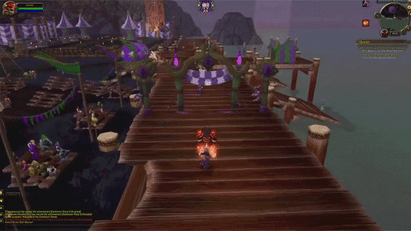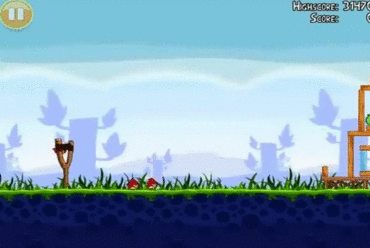Game-based learning is hot. A new study released earlier this month joins the pile of research documenting the educational impact of video games. Researchers at Queensland University in Australia studied eight- and nine-year-olds who play Minecraft. They found the students engaged in problem solving and creative thinking as they navigated its building block Lego-like worlds. Minecraft has been featured in other studies as well showing the game teaches math and science.
In the 1980s, developers predicted that video games had applications as experiential learning tools. In 2010, The New York Times profiled Quest to Learn , whose unusual teaching style included the use of video games in every classroom. Quest to Learn was home to the “digital kid.” Video games were incorporated into every aspect of learning; from geology and art to advanced math. Homework was a “quest” and grades had “levels.” In some cases, the assignment included video game design. Their quests featured multidisciplinary learning, incorporating English, math, and history into each assignment.
They must have been on to something. Fast-forward to 2015, where the school is not only still in operation but has expanded. Statewide test scores have remained consistent, and the school is ranked higher than 74.2% of the middle schools in the city.
Attracting top millennial talent could be as simple as engaging them in play. Could your company use the Internet and video gaming as a path to skills development and continual learning? If you can, you’ll have this cadre of technology-savvy talent lined up outside your HR department before you can say “YOLO.”
Broadcasting Live and in Your Cubicle
Organizations can learn from the latest in business school education; MIT is teaching entrepreneurial skills through video gaming. In Cambridge, game simulations let students launch a new company and then see how those decisions evolve.
Businesses can apply this same idea by using computer games in the workplace to stimulate and teach real-world skills.
Here’s something to consider: a common complaint about the digital era is its ability to distract. Today we’re a lot like the dogs in the movie “Up.” Our smartphones are the digital equivalent of yelling “Squirrel!”
But could a video game teach us to concentrate? Have you ever sat down to play a video game and suddenly three hours have passed? Games force a narrowing of your attention. Each linear task requires singular focus taking you to the end of the level or game. Interestingly, an employee with the ability to concentrate on a task until completion is viewed as generally productive. So here a few more examples of how video games could be applied at work.
World of Warcraft: World of Problem Solvers

Video games are proven to help critical-thinking skills. In 2008, a researcher at the University of Wisconsin-Madison studied 2,000 online posts about World of Warcraft. 86% of the posts were related to problem solving and critical thinking, knowledge sharing, and debate over the game.
John Seely Brown , scholar and part of a Deloitte think tank, says he’d hire a World of Warcraft expert over a Harvard MBA any day. He cites how the game is a collaboration of online gamers. To succeed, players join guilds of fighters who work together to solve problems. On any one night, Brown says 15,000 new strategic creative ideas are meshed together. To succeed, players have to sort through these ideas to develop a winning strategy for their game play.
Imagine how these skills could cross over into business and product development in the real world.
Could SimCity Help Urban Planners?
Taking this idea one step further, let’s look at SimCity, that build-a-world simulation game. The game requires creative planning and problem solving, which has intriguing applications for urban planners:
Players evaluate foot traffic in a city block and must create ways to move urban dwellers from place to place
Traffic jams cause disruption, just like in real life, so players must consider expanding public transportation or other options in order to keep the city flowing smoothly
Gamers create green space. In the real world, green space is attractive to real estate developers. The city benefits from the additional taxes that come from economic development
Could Video Games Cure Cancer?
In 2013 Cancer Research UK released GameGene and CellSlider, smartphone apps that, under the guise of gaming, entice players to look at slides of real tissue samples and guess how many cancer cells are present. Players don’t realize they’re analyzing data; in fact, the games are fun. Scientists extrapolate the data to use in research. In just three months, gamers analyzed more data than Cancer Research UK could in over a year.
Then there’s Zooniverse. Their home page says it "provides opportunities for people around the world to contribute to real discoveries in fields ranging from astronomy to zoology. Welcome to the largest online platform for collaborative volunteer research.”
Zooniverse is designed like a video game, allowing you to play while analyzing research. You can hunt for planets, classify orchids to help with climate research, or help scientists define surface characteristics of Mars by examining real images of the planet.
I Don’t Want to Work: I Want to Drum. All Day

There’s enough research proving that playing video games really does teach concrete skills you can apply at work. Could playing Angry Birds help with stress management? While we don’t have the answer for that one, it is clear that there are some benefits to considering engaging with your team by utilizing video games as training tools.
Increasingly, employers are setting up game rooms as a strategy to drive employee engagement and allow people to unwind and play games to let off steam. If you have a work group that’s struggling to mesh, teach them collaboration skills by setting aside game time. We mentioned World of Warcraft, but there are plenty of other games that encourage multiplayer collaboration.
Since most of us need more exercise, there’s Wii bowling. Or you could invest in some flat screens. Every day at 2:00 p.m., to counteract that after-lunch-I-need-a-nap syndrome, you could stream Just Dance. Everybody up and out of the chairs, we’re going to get our workplace groove on. Exercise equals endorphins. and endorphins spur creative thinking. Imagine the work impact!
Isn’t it refreshing to think that “Defeating villains while working in collaborative groups to overcome multifaceted challenges” could be a description of a hot new video game — or a description of your work environment?

